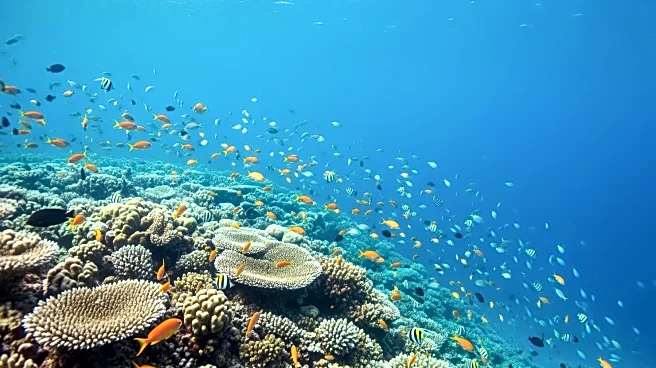What's Happening?
Japan has announced the resumption of seafood exports to China, marking the first shipment since China imposed a ban in August 2023. The ban was a response to the discharge of treated radioactive wastewater
from the Fukushima Daiichi nuclear power plant, which suffered meltdowns following a 2011 earthquake and tsunami. The first shipment, consisting of 6 metric tons of scallops from Hokkaido, was sent to China after Beijing decided to ease the ban in June 2025. The ban had significantly impacted Japan's seafood industry, particularly affecting exports of scallops and sea cucumbers, as China was the largest market for Japanese seafood. Japan continues to urge China to lift remaining bans on seafood from Fukushima and nearby prefectures.
Why It's Important?
The resumption of seafood exports to China is a significant development for Japan's seafood industry, which has faced challenges due to the ban. The easing of restrictions could lead to increased trade and economic benefits for Japanese seafood producers. Additionally, this move may improve diplomatic relations between Japan and China, as the wastewater issue had been a major political concern. The decision also reflects China's willingness to engage in negotiations and potentially signals a shift in its stance on environmental and safety standards related to food imports.
What's Next?
Japan is expected to continue diplomatic efforts to persuade China to lift the remaining bans on seafood from Fukushima and surrounding areas. The Japanese government is also likely to focus on rebuilding the reputation of its seafood industry and ensuring compliance with international safety standards. Further negotiations between Japan and China could lead to the resumption of other banned imports, such as Japanese beef, which would further benefit Japan's export market.
Beyond the Headlines
The resumption of exports highlights the complex interplay between environmental concerns and international trade. It underscores the importance of transparent communication and scientific validation in addressing public fears about food safety. The situation also raises questions about the long-term environmental impact of nuclear waste management and the role of international bodies like the International Atomic Energy Agency in mediating such issues.












